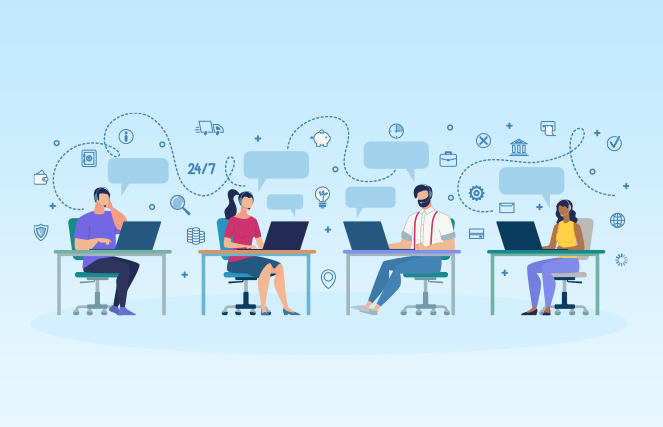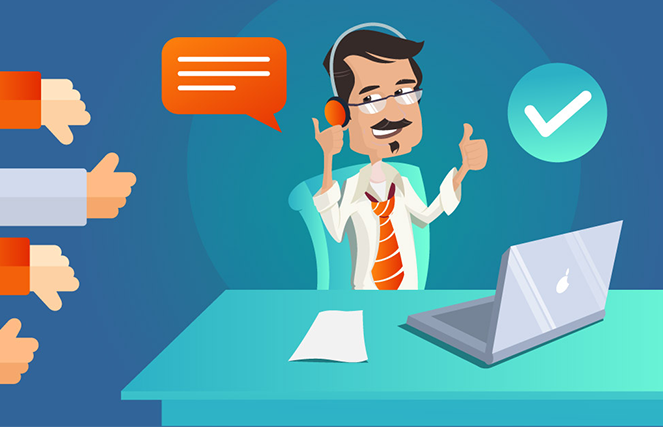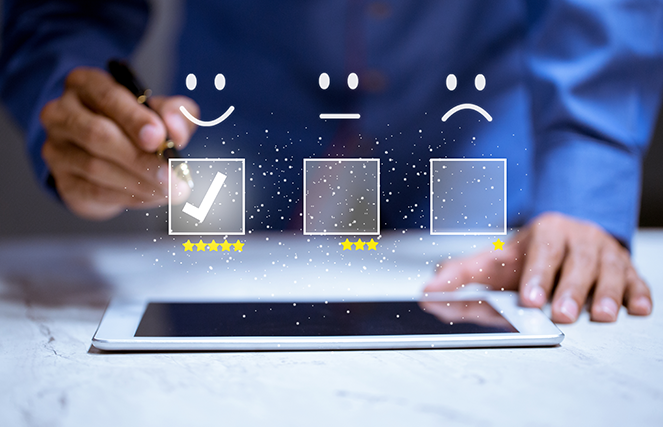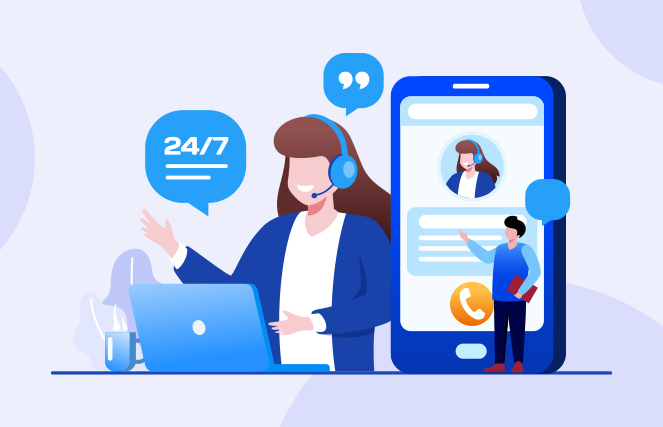Customer service is not limited to delighting the existing customers anymore. Its significance also lies in drawing in new customers and retaining them for the long term. Nowadays, customers have become increasingly impatient, and they expect a quicker response from brands. If the response time is higher, customers are more likely to switch to other businesses.
A poll conducted by The Social Habit shows that while connecting with the brand for help, 32% expect a response within 30 minutes. Another study shows that 71% of customers believe that companies should prioritize and value their time. That shouldn’t be a surprise. After all, who enjoys waiting on a call for hours after reporting their problems?
Hence, it is not only about finding solutions but also about finding them as quickly as possible. There arises the need for companies to inculcate a customer-responsive culture. A customer-responsive culture encourages agents to put the customers first and bring out effective solutions as quickly as possible. The combination of accuracy and speed elevates the overall team productivity and helps brands serve delightful customer experiences.
In this post, we will take an in-depth look at how to create a customer-centric culture and increase customer responsiveness at your company. But first, let’s take a look at what exactly customer responsiveness is and some stats around it.
Customer Responsiveness refers to a business’s ability to fulfill the service inquiries promptly. This includes the speed of your agents to initiate a conversation and the time taken by them to resolve the request altogether.
How Fast do You Need to Be?
The answer is a bit tricky. Multiple factors impact your average response time, including:
- Number of steps taken by agents to find customer history
- The difficulty in executing collaboration
- The ticket volume to the agent ratio
- Frequency of issues that take longer to resolve
- The communication channels that you’re offering
Majorly, you need to know the communication channels and their average response time to understand the overall customer responsiveness. Below we’ve put together a section to give you an idea of the average response time across different channels:
Average Customer Response Time
1. Email
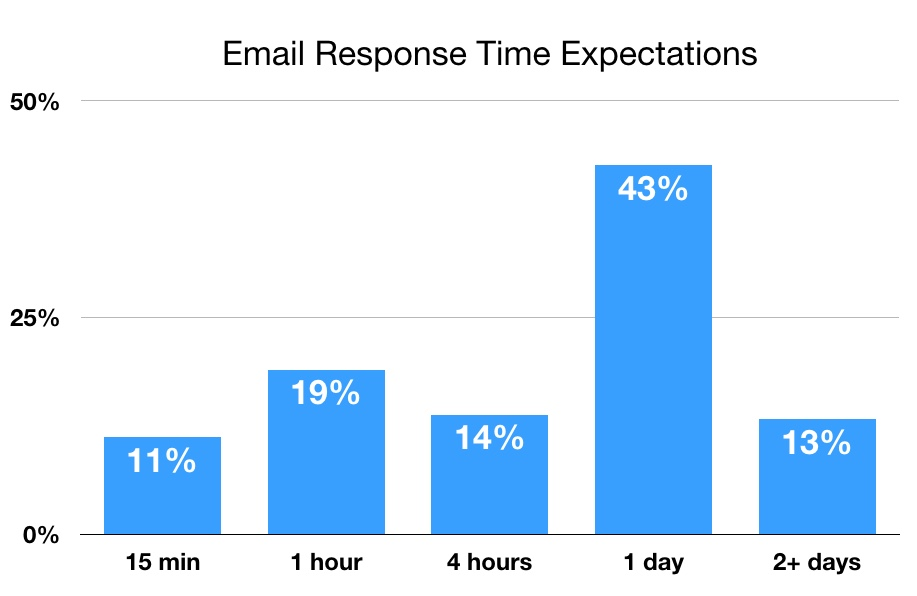
Customer Expectations for Email Response
According to a study, 43% of customers expect a response to their emails within 24 hours. 14% of people expect a response within 4 hours. However, according to SuperOffice, it takes an average of 12 hours and 10 minutes to respond to a customer’s email.
2. Phone
It is difficult to narrow down the universal average for phone calls, majorly because the wait times vary depending on the industry, seasonality, time of day, and other factors. However, a study shows, the average wait time for a customer on hold before speaking with an agent is roughly three seconds. Additionally, the same study states that most customers get a resolution within four minutes of speaking with a rep.
3. Live Chat
A study shows that the average time taken for a service agent to respond to a customer’s first message is under one minute. The same study found that the average length of a live chat session is 14 minutes.
4. Social Media

People’s Wait Time Expectation Vs. Brand Response Time on Social Media
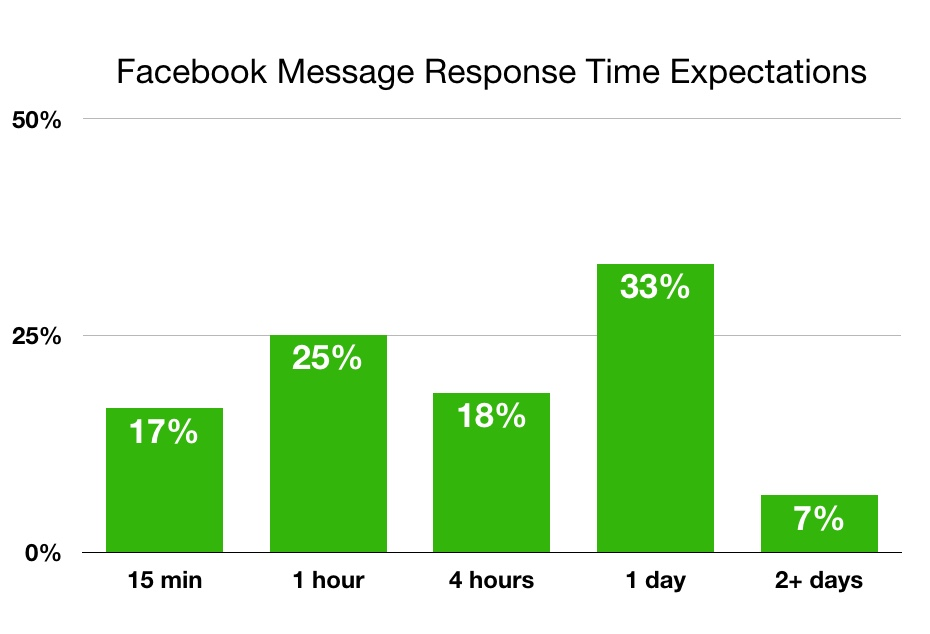
Customer Service Complaint Response Expectation From Facebook
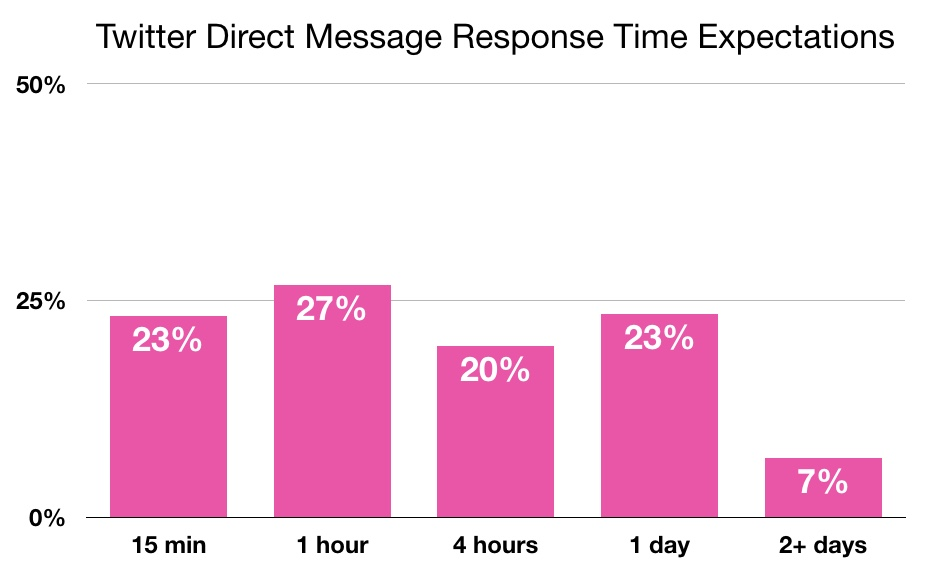
Customer Service Complaint Response Expectations from Twitter
10 Ways to Improve Your Company’s Customer Responsiveness
So, now we know the average response time and customer expectations from multiple channels. Besides, we have our benchmarks set. So, let’s look at a few ways to improve your customer responsiveness and reach your customers when and how they want.
1. Understand Your Customers
The first step to improving your customer responsiveness is understanding your customer and what channels they prefer. You can take the help of surveys and feedback forms for this purpose. This way, you can know their expected wait time. You can learn from the feedback by understanding the customer’s experience with your brand. Knowing your customers better and engaging with them on a personal level will help you outperform your competitors.
2. Set Performance Goals
Setting individual as well as team goals will help you improve accountability. Agents can know how quickly they’re expected to answer customer questions. You can set up a dashboard to track the team performances and use notifications for daily goals.
HubSpot serves as one of the best customer responsiveness examples. They have installed monitors in each room of their support offices. These monitors track their team’s performance and notify them if they’re meeting their daily goals or not. If their team is on pace, the numbers are shown in green. If they need to catch up, the board turns red, so they know people are waiting on hold. Small details like this can help boost agent morale and motivate them to hit expected numbers.
3. Adopt Automation
Service desk automation is one of the most effective ways to improve customer responsiveness. If you integrate automation in your support channels, you can ensure an immediate response regardless of the communication channel that the customer is using.
Learn from various customer responsiveness examples. For example, if you automate your ticket incoming process, your portal can directly send a personalized response to customers whenever they enter their queries. If you use chatbots, they can respond to customers even when your team is not online. They can hold the customer queries until your agents take over.
Speaking of automation, DeskXpand is now available with its latest automated ticketing features. It lets you send personalized emails and notifications when the customer enters their queries. Opt for DeskXpand and let your customers enjoy impeccable and fast service. Would you like to have a free trial?
4. Analyze to Provide Consistent Support Experience
Providing a consistent customer experience without losing customer context is important while improving customer responsiveness. To maintain consistency, you need to analyze your support process regularly.
You constantly need to address questions like: Do you need to optimize your support? Do your workflows need an update? Are the canned messages that you wrote last quarter outdated? These questions will help your current customer service processes and identify the key issues holding you back.
5. Standardize A Process (And follow it Thoroughly)
Another key point to improve your customer responsiveness is to take care of important tasks like customer responses and make sure the response deadlines are met. This can only happen if you have a standardized process in place. With a system in place, you can make sure that no customer is ignored and that every customer gets help within an appropriate time frame.
This process can be on a daily basis or every ticket basis. For example, you can assign a particular chunk of time every single day to review all the customer service channels and respond wherever necessary.
6. Create an Omnichannel Support Experience
Omnichannel support is another way to reduce the wait time and improve customer responsiveness: the more support channels, the better. If you only provide one or two ways to contact your brand, you may create a scenario that prevents customers from reaching you.
An omnichannel system provides various mediums for customers to contact you, connects these channels, and creates a unified interface for your agents. This way, it becomes easy to start a conversation in one channel and then switch to another, if needed.
DeskXpand is one such omnichannel support software that helps you set up well-orchestrated support workflows across email, self-service, and other such mediums. Take a free trial and find out more.
7. Pay Attention to Your Reviews
Online reviews must be regarded as opportunities to showcase incredible customer service. It is in your best interest to respond to every single review you receive, whether positive or negative. Each online review is an opportunity to either gain a loyal customer or win over a sour reviewer. If you do not respond, you lose. Especially to the negative reviewers!
8. Use The Power of Canned Responses
There are some tools to help agents complete an overhaul of your support system. Tools like canned snippets, personalization tokens, and email templates can save your team time when composing messages to respond to the customer. This can save you plenty of time.
- SnippetsSnippets are canned responses that you can trigger by entering a code. They are particularly useful in writing introduction and concussion messages. They also tend to help your support agents during live chats, especially when agents regularly repeat the same messages.
- Email TemplatesEmail templates are also pre-written messages that the agents can use as needed. In customer support, agents work on way too many common issues with common solutions. Templates will help your agents save time from having to rewrite the same answer to a problem they solved a few hours ago.
9. Provide Self-Service Resources
A self-service knowledge base is another way to improve customer responsiveness. This is because it dramatically reduces the number of incoming service inquiries.

DeskXpand Knowledge Base
A knowledge base can prove to be an excellent resource that customers can use to troubleshoot their problems. If they have simple questions, they won’t have to reach your support teams. Instead, they can independently find solutions simply by reading the knowledge base. It helps the agents by freeing up their time so that they can focus on important issues.
10. Listen on Social Media
Social Media listening is an obvious way to improve your customer responsiveness. Social media is a breeding ground for both customer service wins and fails. There are plenty of companies that capitalize on Facebook, Yelp, etc., to communicate with their audiences.
This helps them know the customers and also increases consumer trust. It would be a big mistake to ignore all the social media platforms.
In a report, Conversocial stated that only 3% of tweets looking for help from a brand tagged the brand. That means an incredible 97% of Twitter users could be tweeting bad or good things about your brand without you even knowing it! Yikes. Hence, listening on social media is crucial to understanding your customer and serving them well. You can find mentions of your brands even if you’re not tagged simply by looking up your company name in the Twitter search box.
Leverage The Power of Technology
Thankfully, technology has made it easier for brands to improve their customer responsiveness. Most support processes can be automated if you pick the right software solution. If you’re looking to manage your online reputation, identify at-risk customers, improve customer responsiveness, improve your leads, Biztech’s DeskXpand would do you well.
DeskXpand is an automated, omnichannel customer service software that helps you deliver a more cohesive, flexible, and integrated customer experience across all channels. It is built by functional experts and developers with certifications in their respective fields. We are ISO27001 certified portal experts with 14+ years of industry experience. We aim to help brands achieve complete visibility and attain a high-resolution rate through customer support software. So, would you like to take a trial?

